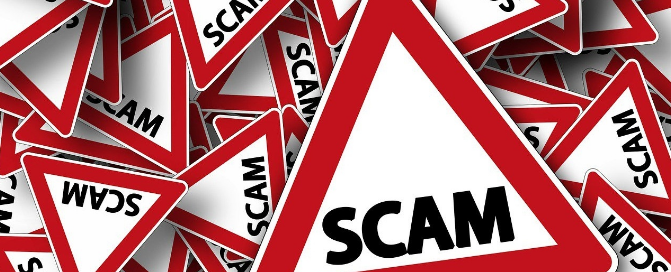5 Student Loan Forgiveness Scams to Look out for in 2019
A promise to help you get out of debt or default ... for a fee. A secret student loan forgiveness program you never heard of, but that you magically qualify for. Offers from companies with no website or phone number. Oh, and hurry! This offer is limited-time only. In case you haven't guessed, these are just some of the student loan forgiveness scams you may run into in 2019.
Read on for how to spot them.

1. Promises of help for a fee
Is a company offering you help in exchange for some up-front cash? If so, your BS detector should be going off.
If you’re told you’ll be charged to consolidate your loans, to qualify for lower monthly payments, or to have loans forgiven, you’re dealing with a scammer.
If you have federal loans, you’ll always have access to help—for free—through the U.S. Department of Education.
Visit StudentLoans.gov and submit a free application for a Direct Consolidation Loan. Or explore your repayment plan options on the Federal Student Aid website.
You can also contact the federal Loan Consolidation Information Call Center at 800-557-7392.
2. Promises to get you out of default for a fee
You can get your federal loans out of default in three different ways without a participation fee.
They are:
- Paying your debt in full.
- Going through loan rehabilitation, which is a period of several months in you make agreed-upon payments to clear your defaulted status.
- Consolidation, in which you join together multiple federal student loan payments into one.
Your loan holder is required by the federal government to work with you to ensure the payments you make through rehabilitation or consolidation are affordable.
It's important to note that collection and legal costs may be legitimate. Program participation fees are not.
3. Promises to get your student loans forgiven
Any company that promises to reduce what you owe on your student loans likely lying.
Federal student loan forgiveness programs are available for public servants, teachers and—in some states— doctors and lawyers.
If you are eligible for these programs, you must meet eligibility requirements and have a reliable payment history before being able to take advantage of forgiveness.
4. Offers from a company you've never heard of or can't find online
Did you get an unsolicited call or text about help with your student loan debt and then were unable to find an online presence for the company?
That’s a good indicator the company is running a scam. If you have federal loans, you should deal with your student loan servicer directly or get information from the Federal Student Aid website. If you have private loans, you should contact your servicer to see what repayment or forgiveness programs it offers.
5. Promises tied to a limited offer
Legitimate loan repayment and forgiveness programs are always available to those who qualify. Any message that you must “act fast” or that indicates that an offer has limited availability is a red flag.
What if you've already fallen victim to one of these scams?
If you’ve fallen for a student loan scam, take these steps as soon as possible:
- Call the three major credit bureaus—Equifax, Experian and TransUnion—to report possible fraud and put a freeze on your credit report.
- If you gave out your FSA ID, contact the Office of the Inspector General, where they will help you decide the best course of action.
- Consider lodging a complaint against the business with the Consumer Financial Protection Bureau on its complaint site or by calling 855.411.2372.
- Contact your bank or credit card company to see if you can stop payment on an advance fee.
Legitimate student loan forgiveness companies
Psych—there are none.
Seriously. If you’re hearing from a company that says it can get your student loans forgiven, just shortcut straight to “scam.” Don’t pass go. Don’t give them $200.
That said, there are legitimate student loan forgiveness programs out there. These include:
The Public Service Loan Forgiveness Program
This program will forgive your federal loans after making 120 qualifying payments while working for a qualifying employer.
See Also: What Is Public Service Loan Forgiveness?
Income-Driven Repayment Plans
These plans reset your federal loan payments to 10-20% of your “discretionary income” (as determined by the government). After 20-25 years, you can get your loans forgiven.
See Also: Beginners' Guide to Income-Driven Repayment Plans
Job-based student loan forgiveness
In many states and professions, you can get your loans forgiven for working in a high-needs area. These awards often provide more money than PSLF, and for a shorter time commitment.
See Also: The Ultimate List of Grants to Pay Off Student Loans
Employer student loan forgiveness
Some companies offer student loan forgiveness programs for employees. Find out more info here.
Military student loan forgiveness
The military also offers programs for people who enlist—to pay your tuition if you haven’t enrolled in school, or to help with your student loans if you have. Find out more here.
Legitimate lenders
Private lenders aren’t likely to forgive your loan completely—but they can help you reduce your monthly payments and the interest you pay over the long term through refinancing.
Whether you have private or federal loans, your best bet is to contact your student loan servicer as soon as you experience challenges with the repayment process to see how you can make it more manageable.
Learn more about how to pay off your student loans.
